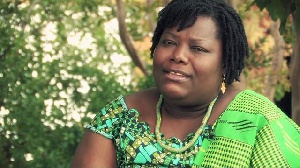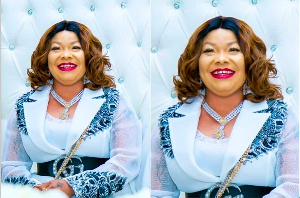An average one out of four girls will be married off before their 18th birthday in Ghana.
These child brides are often unable to effectively negotiate safe sex, leaving them vulnerable to sexually transmitted infections including HIV/AIDS and unwanted pregnancies.
“Child marriage affects the girl socially, economically, health-wise and psychologically,” said Mrs. Aba Oppong, Chairperson of Girls Not Brides Ghana, a global partnership of civil society organizations committed to ending child marriage and enabling girls to fulfill their potential.
The key objective is to work with government and other stakeholders to develop a joint strategy to end child marriage. The group joined the international community to mark the 2016 International Day of the Girl Child day with a call for “a world free of discrimination for young women and girls”.
Reports indicate that more than 700 million women are married as children – below age 18 – and some 250 million also married off before age 15 worldwide.
The situation is not different in Ghana. The UNFPA Child Marriages Profiles in Ghana and Demographic Health Survey–DHS 2008 indicates that the prevalence rate in the Upper East Region stands at 50%, Upper West 39%, Northern region 36% and Brong Ahafo 33%. Central region has 28%, Ashanti 23%, Eastern region 18%, Western Region 18% and Greater Accra 11%. This year’s theme focuses on ‘Adolescent Girls and the Sustainable Development Goals”, which sets a range of international targets, including gender equality, to be achieved by 2030. “Ending child marriage requires strategies for girls’ empowerment, change in social and cultural norms, legal reform, and policy action,” said Mrs. Aba in a statement. Ghana’s Criminal Code 1960 Act 29 makes it illegal to force a person to get married to another person against that person’s consent.
The Children’s Act of Ghana 1998 (Act 560) also states that no person shall force a child to be betrothed; to be subject of a dowry transaction; or to be married. It also states that the minimum age of marriage of whatever kind shall be 18 years.
However, little has been done to stop child marriage in the past. Girls not Brides Ghana has commended the Ministry of Gender, Children and Social Protection for the launch of a youth policy with child marriage as one of the components as well as the development of Ghana’s strategy to end child marriage. “We still call on the Ministry to initiate a bill on early and forced marriage through Parliament to be passed into law.
The bill should also address its effect on health, education, community and the economy since there is no provision in the children act which provides for nullification of child marriage,” said the group.
It also says urgent actions are needed to scale and prevent thousands of teenage girls being forced into marriage in the next decade.
“To stop child marriage, policies and programs must educate communities, raise awareness, engage local and religious leaders, involve parents, and empower girls through education and employment,” concluded the statement.
Opinions of Friday, 28 October 2016
Columnist: Kofi Adu Domfeh















